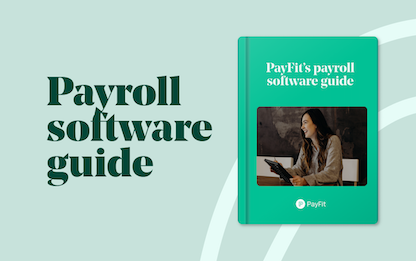- Blog
- |People management
- >Equality, diversity and inclusion
- >Managing Millennials
Managing Millennials


Ahhhhh... millennials! We’ve all heard about them.
Has there ever been a generation more universally discussed, analysed, commented on, maligned and misunderstood than millennials?
Probably not.
Millennials are, to previous generations at least, an anomaly and unlike any other generation that’s preceded them. However, the vast majority of millennials are now working, and the generation accounts for an estimated 50% of the current workforce. By 2025, this is predicted to increase to 75%.
This presents companies and, more specifically, leaders with a new challenge. One that will likely see companies having to adapt their methods, processes and styles to incorporate the quite particular behaviours, attitudes and characteristics of millennials.
What is a millennial?
Sometimes also referred to as ‘Generation Y’, the demographic cohort following Generation X and preceding Generation Z, a millennial is generally considered to be someone born between the years 1981 and 1996.
While there are different interpretations of the starting and ending birth years for millennials, the range stated above is largely accepted.
Like all other generations, the region and socio-economic conditions in which someone is born is always likely to have a significant effect on someone’s personality. This means that millennials born in western or more developed countries are likely to have been highly influenced by the rise of the Information Age, increased digitalisation as well as the birth of social media.
These influences have all contributed to the construction of Generation Y, and have helped shape their quite unique mannerisms.
Managing millennials
We will discuss shortly why the word management is not necessarily the most appropriate term to describe the leadership of millennials, although, for the purpose of this section, we will persist with it.
Managing millennials is perhaps more challenging than managing previous generations; however, this is not to say that millennials as a whole are troublemakers who are hell-bent on disrupting the status quo.
Managers need to be able to appreciate what makes a millennial tick and look to understand the ways that they can get the best out of them.
1. Try to lead, don’t manage
One fundamental belief among millennials is that leadership and management are not really the same. It is fair to assume that leaders generally direct, demonstrate and influence people, whereas managers can sometimes control and rule.
Without allowing this to become too intellectual, the word, leadership can be dissected to help people understand what millennials expect.
For example, being able to lead is pivotal in modern management styles. The days of alienating command and control tactics are gradually being phased out; instead, millennials expect those in senior positions to implement a do as I do approach, not a do as I say one.
Consequently, millennials favour leaders who take care of them, represent their values, treat them fairly and pay attention to their general welfare. They’re unlikely to take too kindly to outdated disciplinarian methods that look to limit creativity and freedom.
As a result, people in positions of responsibility should take the time to understand the people within their workforce and try and appreciate their intricacies. They shouldn’t presume that there is a one-size-fits-all approach to leadership and instead should look to treat people as individuals who require personal guidance.
2. Think both short and long-term when setting goals
If we want to be accusatory, we could perhaps say that millennials suffer from perpetual short-termism.
Most have grown up in a world of instants and quick-wins. Think about it, this is a generation raised with fast-food restaurants on every street corner and a whole encyclopaedia just a couple of clicks of a mouse away.
Simply put, millennials aren’t too used to waiting for things and they’re always keen to broaden their horizons.
This, however, shouldn’t be a problem for leaders providing they look to embrace this aspect within their millennial workforce. Having a thirst for knowledge and an inclination to add new skills can only ever be considered a good thing.
Leaders should create short-term goals and provide opportunities for their employees to learn and experience new things.
3. Show appreciation
The School of Hard Knocks has dictated for quite some time the way that many managers approach the quite ludicrous idea of PRAISING their employees!
I mean, God forbid congratulating a member of the team for making a sale or even a talented content writer for producing a cracking piece of content. Perish the thought, 'ey?
Well, millennials expect and, in many cases, demand appreciation for their achievements at work. We must remember that this is a generation that has been posting on various social media platforms for years in expectation of receiving instant likes or retweets. For them, this is a measure of reward and recognition, and they’ve grown up with it.
While the Roy Keanes of the management world may believe that handing out praise too frequently can lead to complacency and a false sense of entitlement, millennials—thankfully—have a slightly different outlook on the subject.
Leaders ought to try and create an environment where high-performing individuals are rewarded and congratulated.
4. Create a good culture & work environment
Millennials are a principled bunch who value the work they do. They’re not necessarily as fixated on making the big bucks as their predecessors were and, in this increasingly woke world, they’re perhaps a little more switched on to social issues than those that came before them.
In a recent study, it was revealed that two-thirds of British millennials value culture above salary. Consequently, it’s within a company’s interest to create a strong company culture with ethical values.
Providing things like flexi-hours or work-from-home opportunities, as well as creating a more homely and relaxed atmosphere, are excellent ways of encouraging millennials to feel more acclimatised and comfortable in their role. You never know, it may even help achieve better results.
5. Meritocracy is the way forward
Gone are the years of the silver spoon in mouth employee. Millennials won’t and don’t tolerate nepotism, bias or discrimination in the workplace. Although this may seem contrary to what many people may think of the everyone gets a trophy generation, many millennials value hard work, grit and resilience.
Rewarding and promoting experienced employees based solely on their longevity and durability is unlikely to sit well with Generation Y. Instead, when millennials arrive in a company, they expect to see leaders who appreciate and value their work and encourage them to break down barriers.
In many ways, meritocracy is pivotal to the millennial mindset and, in a truly fair society at least, those who have bright and innovative ideas should be able to progress professionally regardless of their status.
Therefore, leaders should put an emphasis on creating an environment where no matter the age, experience or seniority, millennials can thrive, develop vertically and get rewarded for producing outstanding work.
6. Allow group work
This is perhaps one of the more vital areas that modern leaders can focus on. In many ways, it ties in with a number of the points we’ve already mentioned.
An IBM study revealed that over half of all millennial workers felt that they worked better as part of a team than when working alone.
This isn’t all that surprising. A great number of millennials will have gone through school and university while working in collaborative groups, meaning that team synergy is something they’re almost certainly accustomed to.
From a leader's point of view, allowing millennials to work together can also have other benefits. Having a collective purpose and goal helps build team spirit, culture and identity; while forming teams can also help more introverted individuals to express themselves more confidently than they otherwise would if they were working on their own.
Build a millennial mindset
Lots of companies struggle to retain millennials and, as a result, suffer from a high turnover rate. While there are many reasons for this, a significant one is likely to be that there is a universal reluctance to accept changing behaviours and dynamics within the modern workforce.
For the reasons outlined in this article, millennials are unlike any other generation that’s preceded them.
Antiquated systems that put more emphasis on star individuals rather than the team while also being reticent to accepting change are not progressive.
In fact, they’re the opposite.
They’re a throwback to dark, repressive times that thankfully most modern leaders are moving away from.
Therefore, an insistence on implementing outmoded corporate culture, one that dictates that managers rule the roost and has an entirely top-down hierarchical structure, is unlikely ever to attract the best in class.
Accepting change is perhaps the most powerful tool that any manager can possess. Understanding that well-versed structures aren’t always the most progressive way forward enables shifts in behaviours, attitudes and practices.
Clearly, millennials aren’t going anywhere, meaning that the impetus now lies with modern leaders to adapt to their workforce.
What about PayFit?
The average age of a PayFiter is just 28, while the average age of a manager is just 30. This means that the vast majority of the PayFit workforce are millennials.
This is why we've tried to create a company that has strong values, good culture and provides the conditions for our staff to thrive in.
The PayFit values
① Care for each other
② Strive for excellence
③ Always stay humble
④ Live and work with passion
For us at PayFit, our values are intrinsic to our functioning and we believe that everyone who works and represents the organisation should embody these behaviours.
In many ways, they are just prerequisites for working in a team and we believe that successful and long-lasting teams are built on solid foundations such as these.
PayFit's mission statement
Make work a source of fulfilment for everyone.
Finally, as an organisation that is involved within the HR sphere, we believe that we have a duty to ensure that working at PayFit is as fulfilling as it possibly can be.


UK Expenses Management - A Guide For Employers

Overtime Pay Rates & Laws in the UK

The 2024 UK National Living Wage - An Employer’s Guide

The Cost Of Recruitment In The UK - What You Might Not Know

UK National Insurance Changes for January 2024

